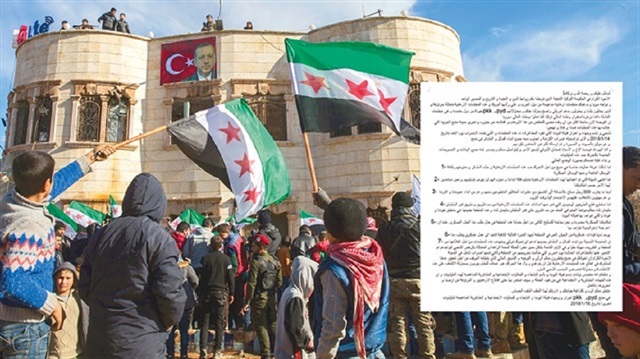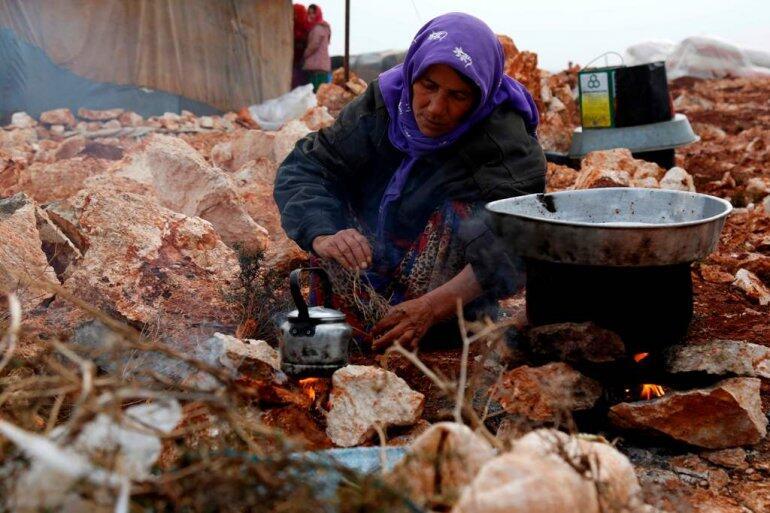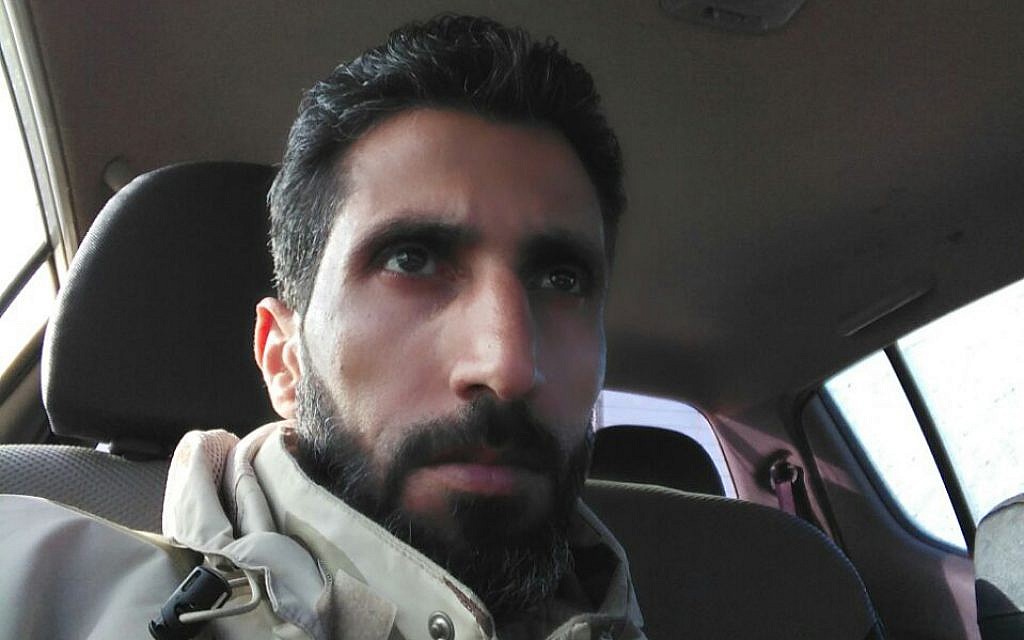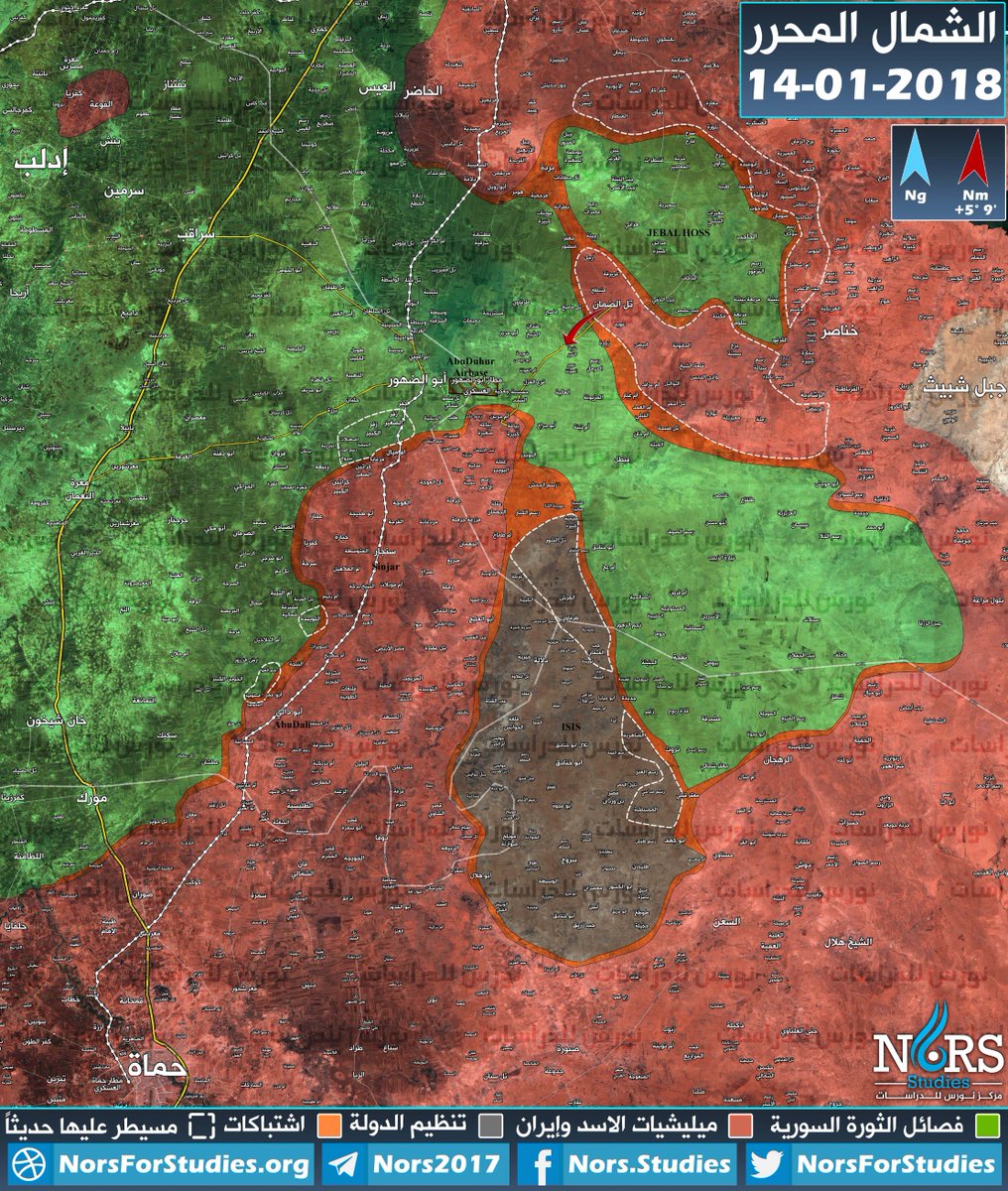
'In a letter sent to Yeni Şafak, the people of Manbij signal that the time to clear the city from PKK/PYD terrorists has come, pledging support from the local population for any upcoming operation led by the Turkish Armed Forces (TAF).
“The PKK carries out executions, forcefully extoll payments; they’re kidnapping our kids to fight with Turkish soldiers; Manbij is literally ready to explode. We call on [President] Erdoğan; please rescue us from the PKK. In the name of region’s population, we want to be rescued from the PKK affliction and put an end to the occupation. We’re ready to break the PKK’s link to Hasakah. The organization is summoning reinforcements to Manbij from Ayn al-Arab and Qamishli. Over the past two years, hundreds of Arab youth have abandoned their weapons and deserted the front group called SDF [Syrian Democratic Forces] that became a tool in the American ploy. Over the past week, over 200 youth left the PKK and fled. The terrorists are attacking those who defected from the PKK. In the past two days, four Arab youth were killed and seven were injured. As the region’s tribes, we’re regularly in touch,” read the letter.
The terror organization sensed that we are in the midst of preparing a team and this situation causes them serious discomfort. There are 600 PKK terrorists in the Manbij region. They have been trying to reinforce their positions over the past few days, but Afrin is of greater importance to them that they don’t pay much attention to Manbij. We’re also capable to launch an attack from here when Turkey begins the Afrin operation. At present, we have 300 soldiers and we have set up a secret operation chamber. We want to be in touch with Turkey with regards to the issue of weapons and munitions. When battle begins, we will have no trouble finding soldiers,” the letter continued.
‘The Turkish army is stationed only 20 kilometers away from us. We want you to know that Manbij constitutes an easier target than believed for the Turkish soldiers and Free Syrian Army (FSA) units. Not only will the PKK be eradicated from Manbij in a matter of a few hours, they will be forced to abandon the whole of the western Euphrates. We will never abandon our resolve to have Manbij become part of the Euphrates Shield region. We ask of our Turkish brothers to please hear our call and rescue us from oppression. They are trying to brainwash our youth into fighting Turkish soldiers. They’re sending them to die in Afrin. We need your help to rescue the Kurdish, Arab and Turkmen population of Manbij from the PKK, which is the enemy of humanity and religion,” concluded the letter.'
From December 27th, 2017:
Syria's Manbij 'disappointed' by US support for PKK/PYD
'The people of Manbij city in northern Syria are "disappointed" in the U.S. for allowing the PKK/PYD terrorist group to maintain a foothold in the region, a Syrian tribal leader said Wednesday.
Ibrahim Hajji, a member of the Assembly of Syrian Tribes and Clans, blamed Washington for allowing PKK/PYD elements to maintain control of the city.
The U.S., he said, had broken its earlier promises to disallow terrorist elements from maintaining a presence west of the Euphrates River.
"The U.S. has deceived the people of Manbij," Hajji said. "The PYD could not have entered Manbij -- or anywhere else -- without a green light from Washington."
An Arab-populated city located on the west bank of the Euphrates, Manbij remains under the control of the PYD, the Syrian offshoot of the PKK terrorist group.
According to Hajji, the PKK/PYD has set up an elaborate intelligence network in the region with the aim of keeping tabs on local dissidents.
If the U.S. had not provided the terrorist group with political and military support, he said, the opposition Free Syrian Army would have already captured the city.
"The reality is that Manbij -- via the PYD -- has been occupied by the U.S.," Hajji added.
Since the Daesh terrorists were driven from the city in August of last year, Manbij has remained under the control of PKK/PYD.'
[http://aa.com.tr/en/middle-east/syrias-manbij-disappointed-by-us-support-for-pkk-pyd/1016545]




